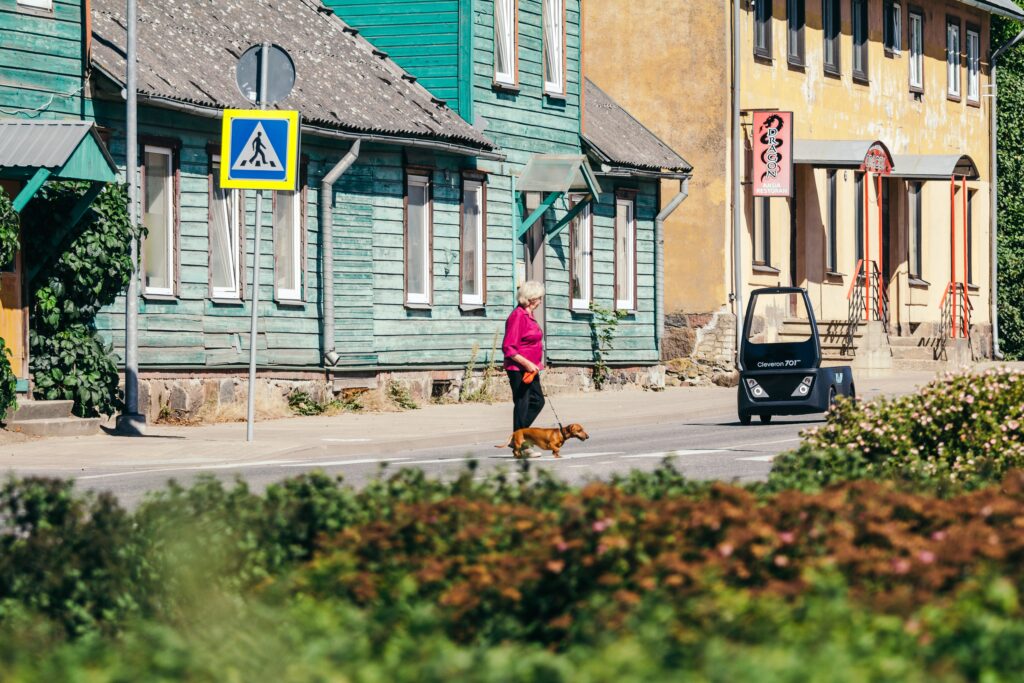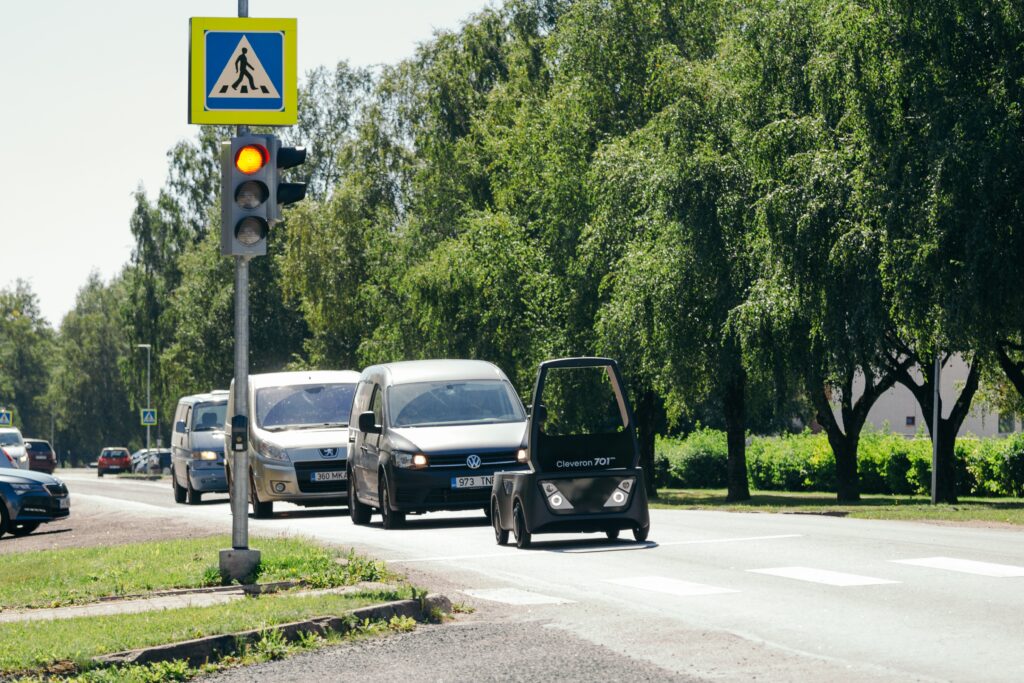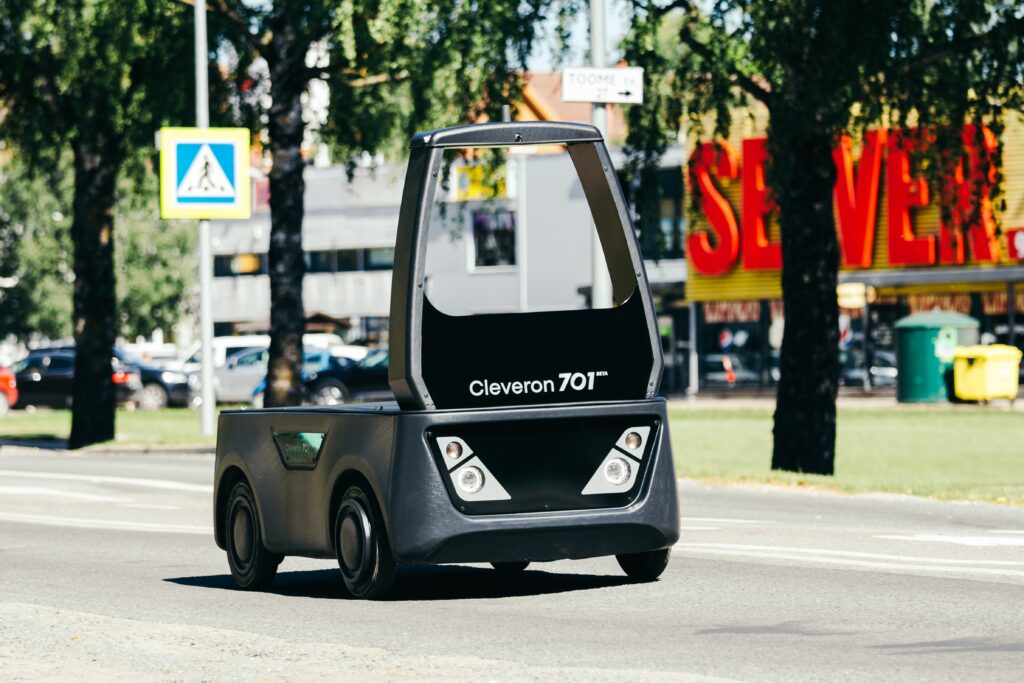Cleveron, a Viljandi-based Estonian tech company, unveils a new driverless delivery vehicle; the company has become first in Europe to be granted a licence to operate unmanned semi-autonomous vehicles on public streets without restrictions.
The company on 14 April unveiled its new unmanned semi-autonomous last mile delivery vehicle, the Cleveron 701. The vehicle is designed for retailers and logistics companies.
Mass production to start in 2023
As the first company in Europe to be granted a pilot licence to operate unmanned semi-autonomous vehicles in public streets across the country, Cleveron has piloted Cleveron 701 for the last six months in Estonia. The company is scheduled to begin mass production in 2023, it said in a statement.
The Cleveron 701 can drive in low traffic areas – like suburbs – to deliver within a 15–30 minutes’ driving range of a retailer, warehouse or a distribution centre. “Supervised remotely, it can deliver goods from a warehouse or store to nearby customers within an hour. The driverless delivery solution also decreases labour cost since one teleoperator is able to supervise 10 vehicles at the same time,” Cleveron said.
The vehicle is designed as an adaptable platform – it can be modified to operate as a grocery delivery robot with temperature-controlled sections, a parcel delivery vehicle or even a high-tech coffee robot or an ice cream truck.
Allowed to test drive everywhere
Cleveron has already tested the vehicle on the streets of Viljandi, where the company is based – a town in southern Estonia with a population of just over 17,000.
“Since Cleveron received the first license in Europe to test drive an unmanned vehicle on the streets of Estonia last year without restrictions, we have been amazed at how easily Cleveron 701 has become an organic part of [the Viljandi] life. What’s more, consumers can get groceries, parcels, restaurant deliveries or even ice cream from an environmentally friendly delivery robot,” the CEO of Cleveron, Arno Kütt, said in a statement.

The company’s representative told Estonian World that although in many other European countries unmanned vehicles are tested – in Sweden and Greece, for example – they either have a restricted strip for the testing or are accompanied by a driver. Cleveron, on the other hand, has a permission to test drive its unmanned vehicle everywhere in Estonia. However, should the company want to test drive it outside Estonia, it would still have to apply for a local licence.
The future of deliveries?
Until now, Cleveron has been more known for its parcel lockers, used by top retailers – including Walmart, Zara and Asda – all over the world. Kütt said Cleveron 701 was a new type of venture for the company.
“We are used to building robots, where you can go and pick up your parcel within seconds. It is still the future for click and collect, but for us, we wanted to expand even further,” Kütt said.

“The online shopping growth has turned e-commerce into just commerce. It is a natural part of shopping. But the delivery times and costs still present a problem, especially with groceries. Consumers want speed and convenience, but it comes with a cost. With driverless delivery, you can cut the last mile labour cost. There will also be less failed deliveries, since the 701 can be deployed from the local dark store (a distribution centre – editor) quickly.”
Cleveron 701’s maximum speed is up to 50 km/h (31 miles per hour) and the load capacity will be up to 200 kilograms (440 pounds). It is an electric vehicle with an option to use different rechargeable batteries.
Cover: Cleveron 701 being tested in Viljandi, Estonia. Photos by Cleveron.

